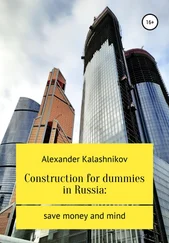Someone betrayed us, that is all I could imagine. They knew in advance. They were prepared for us.
In all the confusion, I was able to escape without detection: through an emergency exit and a series of service passageways. I never saw Pär, and had no idea where he’d gone. I made my way back to my quarters by a circuitous route, taking several hours to make a journey which normally would be a fifteen-minute walk and one tube ride. I was half surprised there was no one waiting for me when I arrived.
I didn’t know how much time I had. Did they know of my involvement? Unless they were truly incompetent, they must. Were they coming for me right now, an armed squad marching along the ship’s corridors, preparing to break into my quarters and take me into custody? It seemed ridiculous, but was it really?
There was a banging at my door. For several long, panicky moments I did think they had come for me. But it was a woman named Liko, a downsider who worked as a maid for Michel Tournier. She thought her husband, Osamu, had been arrested, although she couldn’t be sure. No one would tell her a thing, but she couldn’t find him anywhere, and none of their friends had seen him.
Osamu was going to co-pilot one of the shuttles, but I didn’t know if Liko knew that. I promised her I would find out what I could, and I assured her that if Osamu had been arrested, I would do everything I could to help him.
Which was probably worse than nothing, though I didn’t tell her that. If the captain and the Executive Council knew about me, then the last thing Osamu needed was my help. She left feeling reassured, but I knew that assurance was misplaced.
HOURSpassed, and not a word, not a sign of security forces. I was afraid to make contact with anyone. I was afraid to leave my quarters. Where would I go? None of this was rational—I knew that, but I felt paralyzed. If they knew about me, they would come.
THEYcame for me, silenced and in silence. The soldiers were masked in metal and glass, eyes hidden by shining silver reflections.
They overrode the door’s security system and entered the first room; when they saw I was in the second, they advanced masked and silent upon me. They numbered five, which seemed far more than necessary for one man.
The five soldiers stood before me, and I slowly shook my head. In a strange way, I could not believe what was happening. The lead soldier stepped forward, still silent, and motioned for me to stand. I did, and the soldier grabbed my shoulder, wrenched me around, and pulled my metal and steelglass arms together, then bound my wrists with electronic shackles. This, too, seemed unnecessary. I made no move to resist or struggle—I would go with them willingly, because anything else would be worse than useless; it would be pathetic.
“What are the charges?” I asked. But there was no answer. “Am I under arrest?” No reply. “I want to speak to Captain Costa.” Still no reply, and by then I knew there wouldn’t be one.
I sighed in resignation; then as the lead soldier shoved me toward the door, my acceptance gave way to a tightening of my mouth and a tensing of my eyes. I tipped my head back, and as the door opened I called out.
“Nikos! Nikos, where are you?”
I was led through the door, flanked by two guards, another in front of me and two more behind. The corridor was empty, but I continued to shout.
“Nikos! Have the courage to face me if you do this! NIKOS!!”
THEYcould have confined me to my quarters. Recoded the locks, put a guard in the corridor, shut down my computer access, whatever was necessary. Apparently that wasn’t enough.
I was locked in a cell.
There was one entire level of cabins specifically designed for disciplinary confinement, located one level beneath the cathedral. I knew from the sounds I heard that a number of nearby cells were also occupied, but I didn’t know by whom, nor did I care.
My cell was equipped with a bunk, toilet, shower cubicle, sink, and a wall screen with only the most restricted system access, and even that was incoming only. I was given one change of clothing. Meals were brought twice a day, trays of the processed food the downsiders lived on.
Oddly enough, however, I was reasonably content. Suddenly my life had become calm and quiet, and waiting did not seem so difficult. Although I had no idea what would happen, nor any control over it, I could reflect at my leisure. I felt relaxed and pressure-free.
I’Dbeen locked up for nearly a week when Father Veronica came to visit me. She was wearing an ordinary black cassock rather than the white I might have expected her to wear for an official visit to a prisoner. I asked her about it.
“I thought you would prefer a visit from a friend, rather than from a representative of the Church.”
“You consider yourself my friend?” I asked.
“Of course. Don’t you consider yourself mine?”
“Yes.”
We shared the wall bed, sitting at opposite ends. We were forced to sit somewhat awkwardly in order to face each other.
“No one’s come to see me,” I told her. “No one has told me whether or not I am officially under arrest, or what the charges are, or how long I am to be here. Nothing.”
Father Veronica hesitated for a few moments before replying, and her expression was grave. “You are charged with treason, Bartolomeo.”
Not surprising, but still distressing to hear. This meant they probably knew everything.
“But you won’t be tried,” she added.
“What do you mean?”
“There will be no trials, not for anyone.”
“No trials?” I felt stupid, as if I wasn’t hearing right.
“No.”
“Then I’ll be released soon.”
“No.” Her eyes seemed to go heavy. “No,” she said again.
I didn’t like what I was hearing, the way she was saying it.
“What’s going on?” I asked her.
“The Executive Council is distinguishing between those who followed, and those who led. Those who followed are being released with only minor sanctions.”
“And those who led?”
“Charged with treason, but not to be tried. No convictions, no finite sentences. You are being imprisoned ‘at the pleasure of the court.’ That’s the phrase Bishop Soldano used.”
“Which means?”
“As long as they wish. Until they decide you have learned whatever lesson it is they wish you to learn. They were not specific.”
It didn’t matter. They were angry, and they would keep us locked up until that anger was gone. That could be years, or decades, I thought.
“I was not a leader,” I said.
Father Veronica gave me a tired smile. “Technically, no. But you were integral to their plans, and you joined the enterprise willingly, without coercion.”
With your influence, I wanted to say. But I didn’t.
“What you provided for them,” she went on, “—they couldn’t have done it without you.”
“They didn’t do it with me,” I reminded her.
She nodded.
“Indefinite sentences,” I said. “I could be here for the rest of my life.”
“I know—it’s incredibly unfair, and unjust. I’ve expressed my concerns to Bishop Soldano, but that was futile. He is as displeased as anyone about what has happened.”
“Why?”
She looked around my cell. Wondering, I am sure, if our visit was being recorded in some way. I wanted to tell her that of course it was, but her expression suggested she already knew that. She shrugged, as if to say that it really didn’t matter.
“I won’t pretend that I am unaware of the political maneuverings of the bishop, and the captain, and others from the sidelines. I know that Bishop Soldano has for a long time wanted someone else as captain….”
Читать дальше












